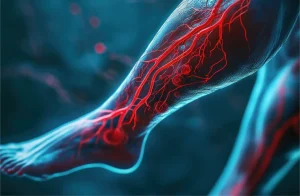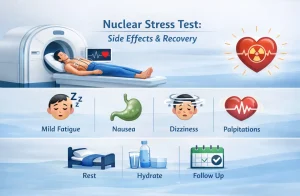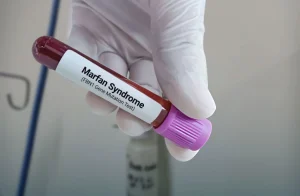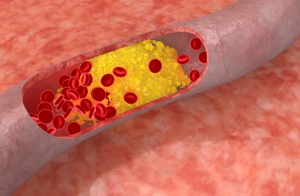When you think about smoking, images of damaged lungs or increased cancer risks may immediately come to mind. Yet, there’s another question lurking in the background—how does smoking affect cholesterol? Surprisingly, this link is becoming a hot topic of discussion and research. This blog sheds light on the lesser-known impact of smoking on cholesterol and heart health.
How is Smoking Linked with High Cholesterol?
Research has shown that smoking directly affects lipid metabolism, contributing to unfavorable changes in cholesterol levels and, ultimately, cardiovascular health.
1. Reduction of “Good” HDL Cholesterol
High-density lipoprotein (HDL) cholesterol, often referred to as “good” cholesterol, helps remove excess cholesterol from your bloodstream and prevents it from building up in the arteries. Smoking has been shown to significantly lower HDL levels. This reduction hinders the body’s ability to regulate cholesterol effectively, increasing the risk of plaque buildup in the arteries.
2. Increase in “Bad” LDL Cholesterol
Smoking triggers oxidative stress, a harmful process that oxidizes LDL cholesterol, making it even more damaging. Oxidized LDL is more likely to stick to arterial walls, accelerating the development of plaque and increasing the risk of heart disease.
3. Rising Levels of Triglycerides
Triglycerides are another type of fat in the blood that contribute to heart disease when present in high levels. Smoking has been shown to raise triglyceride levels by impairing the breakdown of fats. Elevated triglycerides, combined with high LDL and low HDL levels, create a perfect storm for cardiovascular problems.
4. Oxidative Stress and Inflammation
Smoking introduces a cocktail of over 7,000 harmful chemicals into the body, many of which cause oxidative stress and inflammation. These processes damage the cells lining the arteries, known as the endothelium, and promote the accumulation of cholesterol-rich plaques. Chronic inflammation also disrupts normal lipid metabolism, worsening cholesterol imbalances.
Prevent heart problems before they start – Schedule a preventive checkup
Contact UsHow to Manage High Cholesterol While Smoking
A heart-healthy diet is one of the first lines of defense against high cholesterol. Focus on consuming foods that naturally reduce cholesterol levels and promote cardiovascular health. Soluble fiber, found in foods like oats, lentils, fruits, and vegetables, plays a key role in lowering LDL cholesterol by binding to it in the digestive tract.
Additionally, replacing saturated fats with healthier alternatives, such as olive oil, avocados, and nuts, can help shift your cholesterol profile in the right direction. Cutting back on processed and fried foods is equally important, as these often contain trans fats that can exacerbate cholesterol problems.
Physical activity is another essential component of cholesterol management. Regular exercise has been shown to increase HDL cholesterol while lowering LDL and triglyceride levels. Whether it’s brisk walking, cycling, swimming, or even weight training, incorporating at least 30 minutes of exercise into your daily routine can make a significant difference.
For smokers, exercise can also serve as a helpful distraction from cravings, creating an added incentive to stay active.
Medication might be necessary for those whose cholesterol levels remain stubbornly high despite lifestyle changes. Statins, for example, are widely prescribed to lower LDL cholesterol, while other drugs like ezetimibe can reduce cholesterol absorption from food.
Stress is a common trigger for smoking, and it can also worsen cholesterol levels by increasing triglycerides. Finding healthier ways to manage stress can be transformative for both cholesterol control and reducing reliance on cigarettes.
Practices like yoga, meditation, or deep breathing can calm the mind while supporting heart health. Therapy or support groups can also be valuable, especially if stress is a major factor in your smoking habit.
Alcohol consumption should also be kept in check. While moderate alcohol intake can sometimes improve HDL cholesterol, excessive drinking raises triglycerides and adds to the cardiovascular strain that smoking already imposes. If you smoke and drink regularly, reducing or eliminating alcohol can help alleviate some of the burden on your heart.
How Quitting Smoking Will Improve Your Cholesterol
Quitting smoking is one of the best decisions you can make for your overall health, and the benefits begin almost immediately. When it comes to cholesterol and cardiovascular health, the positive changes can be tracked over time. Here’s a breakdown of the timeline you can expect after quitting smoking, focusing on how it impacts your cholesterol and heart health.
Within 24 Hours
Just one day after quitting, your body begins clearing carbon monoxide from your blood. Carbon monoxide from cigarette smoke impairs oxygen transport, which can damage arterial walls and make cholesterol stick more easily. As oxygen levels return to normal, your arteries start functioning better, reducing the risk of plaque buildup.
Within 1 to 3 Months
During this period, your blood circulation improves significantly. The harmful effects of smoking on HDL (“good”) cholesterol begin to reverse, and you’ll start to see a rise in HDL levels. This is crucial because HDL cholesterol plays a key role in removing excess LDL (“bad”) cholesterol from your bloodstream, preventing it from accumulating in your arteries.
In addition, smoking-related inflammation in the body begins to subside. Inflammation contributes to the oxidation of LDL cholesterol, which is particularly damaging to arterial walls. As inflammation decreases, your body becomes better equipped to manage cholesterol levels more effectively.
Within 6 Months
By the six-month mark, your HDL cholesterol levels may have improved noticeably, and the overall balance of your lipid profile begins to stabilize. Many ex-smokers also report weight stabilization and increased energy levels, allowing them to maintain healthier lifestyles. Regular exercise and a balanced diet during this time can further amplify the cholesterol-improving effects of quitting smoking.
Your triglyceride levels, another critical marker for heart health, also start to decrease. Elevated triglycerides are common in smokers due to the effects of nicotine and other chemicals on fat metabolism. Quitting allows your body to process and regulate fats more efficiently.
Within 1 Year
One year after quitting smoking, the benefits become even more pronounced. Your risk of heart disease drops by half compared to when you were smoking. The cholesterol and lipid imbalances caused by smoking have typically normalized, provided you’ve adopted other heart-healthy habits.
HDL levels are likely to be significantly higher than when you were smoking, and the overall quality of your cholesterol (less oxidation, better function) improves. Your arteries also continue to heal from the damage caused by smoking, reducing the risk of plaque buildup and blockages.
Within 5 Years
By this point, your cholesterol levels should have fully stabilized, and the risk of smoking-related cardiovascular damage continues to decline. Your LDL cholesterol levels will likely be lower than when you were smoking, and the risk of developing atherosclerosis drops dramatically. The body’s ability to clear out excess cholesterol and repair arterial walls reaches near-optimal levels.
Within 10 Years
A decade after quitting, your risk of dying from smoking-related cardiovascular diseases (including high cholesterol-related complications) is similar to that of someone who has never smoked. Your body has had time to fully recover from the harmful effects of smoking, and your cholesterol levels are likely in a healthy range, assuming a balanced diet and active lifestyle.
Prevent heart problems before they start – Schedule a preventive checkup
Contact UsWill the Damage to Your Arteries Be Reversed After You Quit Smoking?
Quitting smoking is one of the most powerful steps you can take to protect your cardiovascular health, but many smokers wonder if the damage done to their arteries can be reversed. The good news is that the body has an incredible capacity to heal itself after you quit smoking. However, the extent to which arterial damage is reversed depends on factors such as the duration and intensity of smoking, your overall health, and whether you adopt a heart-healthy lifestyle
Immediate Improvements
Within minutes of your last cigarette, your heart rate and blood pressure begin to drop, reducing strain on your arteries. Just 24 hours after quitting, your body starts clearing carbon monoxide, a toxic gas from cigarette smoke that reduces oxygen levels in your blood. Improved oxygen supply is critical for arterial healing, as it allows your cells to repair themselves more effectively.
Reduction in Inflammation
One of the most significant ways smoking damages your arteries is by causing chronic inflammation. This inflammation weakens the arterial walls, making them more susceptible to the buildup of fatty deposits (atherosclerosis). After quitting, inflammation levels in your body start to decrease within a few weeks. This reduction allows your arteries to begin repairing themselves, improving their elasticity and overall function.
Improved Cholesterol Profile
Smoking disrupts your cholesterol balance, leading to oxidized LDL cholesterol that contributes to plaque buildup in your arteries. When you quit smoking, your HDL cholesterol (“good” cholesterol) levels start to rise within a few months. HDL cholesterol plays a critical role in removing LDL cholesterol from your bloodstream and arterial walls, which can slow or even reverse the progression of plaque buildup over time.
Restoration of Arterial Function
Smoking causes arterial stiffness, which impairs the ability of your arteries to expand and contract as needed to maintain healthy blood flow. After quitting, studies show that arterial stiffness begins to improve within weeks to months. Over time, the endothelial lining of the arteries, which helps regulate blood flow, starts to heal. This improved function reduces the risk of high blood pressure and other cardiovascular issues.
Reversal of Atherosclerosis
Atherosclerosis, or the buildup of plaques in the arteries, is one of the most serious consequences of smoking. While not all plaques can be fully reversed, quitting smoking can significantly slow their progression and, in some cases, reduce their size. Research shows that with sustained smoking cessation and a heart-healthy lifestyle—including a nutritious diet, regular exercise, and cholesterol-lowering medications if necessary—the risk of plaque rupture and heart attack decreases substantially.
Long-Term Benefits
Over the long term, quitting smoking dramatically reduces your risk of cardiovascular events such as heart attacks and strokes. Within one year of quitting, your risk of coronary heart disease drops by 50%. By the five-year mark, your risk of stroke and other cardiovascular complications continues to decline, approaching that of someone who has never smoked.
What Can Help Speed Up Arterial Healing?
While quitting smoking sets the stage for your arteries to heal, adopting additional heart-healthy habits can accelerate the process:
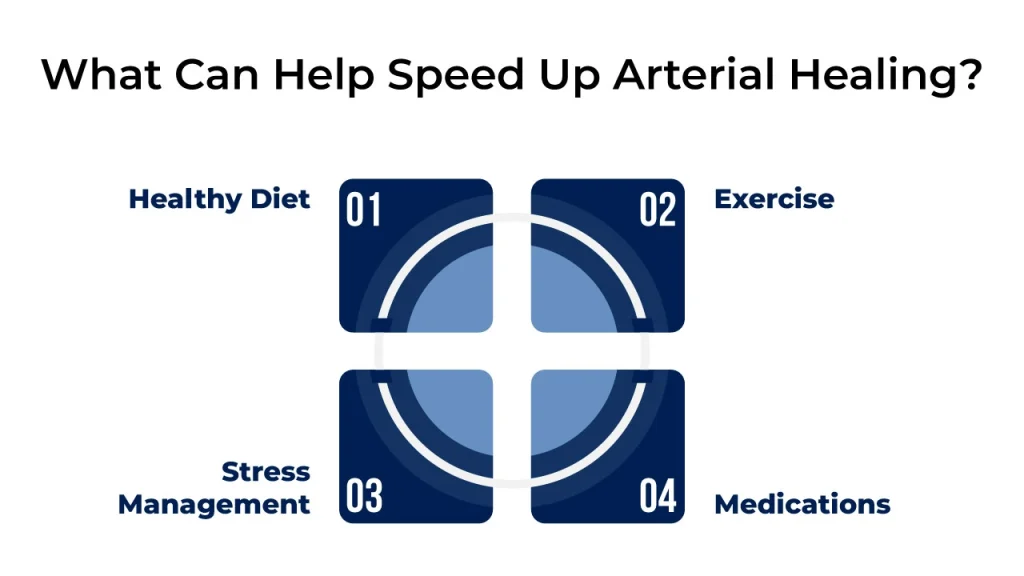
- Healthy Diet: Focus on foods rich in antioxidants, fiber, and healthy fats to support arterial health.
- Exercise: Regular physical activity improves circulation and helps reduce plaque buildup.
- Stress Management: Chronic stress can counteract some of the benefits of quitting smoking by increasing inflammation and blood pressure.
- Medications: If you have a history of high cholesterol or atherosclerosis, medications like statins can help further reduce arterial damage.
Conclusion
Smoking’s impact on cholesterol and overall cardiovascular health is profound, but the good news is that quitting smoking sets the stage for significant healing. From improving cholesterol levels to reducing inflammation and restoring arterial function, your body begins repairing itself almost immediately after you stop smoking. While some damage may be irreversible, quitting smoking drastically lowers your risk of heart disease, stroke, and other smoking-related complications over time.
Choose Atlantic Cardiovascular for expert support in managing high cholesterol. Our experienced team combines innovative technology with personalized care to help you achieve lasting heart health. Don’t wait—make the choice for a healthier tomorrow and get started today.



